Learning fatigue occurs when there’s an unfortunate combination of ineffective, one-size-fits-all training and a disengaged workforce expected to achieve all their learning goals under tight deadlines. This is obviously a huge problem for compliance training. When so much time, money, and effort is put into developing corporate training, learning fatigue can sabotage it all.
Area9
Recent Posts
Each brain is unique, and so traditional one-size-fits-all corporate training actually fits none. Personalized training is a better option, but how can you possibly offer personalized learning to 5000 or more employees? Adaptive Learning, that’s how.
Topics: Adaptive Learning
4 Factors That Influence an Employee’s Learning Experience
How and what an employee learns is influenced by more than just the subject matter: previous knowledge, environment, and attitude all impact an employee’s learning experience.
Topics: Corporate E-Learning
Depending on the school of thought you adhere to you might have heard that there are four, seven, eight, even seventy-one types of learning styles. While experts vary, the general consensus is that there are at least three: visual, auditory, and kinesthetic. It’s commonly believed that to provide a unique learning experience, learners must be able to learn within their preferred style. But we’re not so sure.
Topics: Compliance
What’s the Best Type of Scalable Training Delivery Method for Sales Pros?
Formative assessment is the process of using assessment procedures (like posing questions) during the learning process. The intention is to modify teaching and learning activities to improve a learner’s success.
Topics: Sales Training
Does Unconscious Incompetence Do Harm to Your Sales Department?
Before we talk about unconscious incompetence, let’s talk about unconscious competence. Unconscious competence is a fancy way of saying “second nature” and it’s the level of competence that every sales rep should aspire to. When you think of unconscious competence think of the saying “it’s as easy as riding a bike”: once you learn how to do it, it’s a skill that comes naturally to you so you don’t have to think about it.
Topics: Unconscious Incompetence, Sales Training
If you want to become the next Serena Williams, you don’t take one tennis lesson and expect to win Wimbledon. You hire a coach to train you over a long period of time, nurture your skills, shore up your knowledge base, and set you up to learn newer, harder techniques. Then, you win Wimbledon. Coaching in the workplace functions the same way as coaching in sports.
Topics: Corporate E-Learning
How to Reduce Sales Staff Training Time, but Improve Sales Team Performance
Product knowledge is a driving force behind your sales team’s success. When your team knows your products - all of your products - they’re able to: communicate effectively with your buyers; create excitement around your products and services; boost your buyers’ confidence in your products and business, and; easily relieve objections buyers may have.
Topics: Sales Training
When “Just in Case” Is Better Than “Just in Time” Training
“Just in time” training typically means giving people access to content at the moment of need. Google Search delivers just in time content every day. The value is that it provides learning satisfaction at the point of need. So when your staff can’t remember the specifics of a certain regulation, they have access to resources that help them find the answer to their question. Access to content on demand is an invaluable part of a learning strategy, especially when formal training is infrequent or difficult to access.
Topics: Compliance
2017 brought the #MeToo and the Time’s Up movements to prominence. It saw the “Silence Breakers” celebrated on the cover of Time magazine.
Topics: Corporate E-Learning
What Makes Good Training? Microlearning vs. Adaptive Learning
What makes good training in the corporate learning world? There are many forms of corporate learning and e-learning, and many options are a good thing, but sometimes that much choice can be overwhelming and tricky. For starters, let’s identify two differing strategies and see what comes out. This time we’ll explore microlearning versus Adaptive Learning.
Topics: Adaptive Learning
“Scrap learning” refers to any corporate learning and training that doesn’t end up applied to work. In the training and work education worlds, there is a ton of scrap learning. You’ve most likely experienced scrap learning yourself.
Unfortunately, everyone has.
Topics: Adaptive Learning





